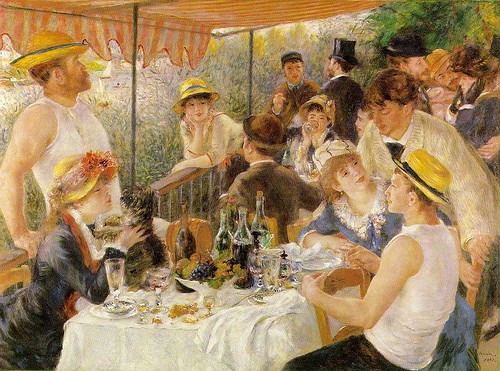


Mansfield's characters aside from Laura seem excessively cold and frivolous. They have no shame for their actions. The mother and sister are utilitarian in reasoning to keep the party going. Although this is just a cover for their selfish nature. It is said "ignorance is bliss." However, I believe Mansfield disproves this notion in the end. For after all the dread and resistance to going to the neighbors', first from the mother and sister and then from Laura, she leaves with a feeling of joy... no maybe not quite joy, but shall we say peace?

http://farm4.static.flickr.com/3210/2858582807_3a7951e042.jpg
Repetition really pulled the piece together. When characters gave identical responses it made them seem to be a faceless representation of their class, a product of their place and time. Some of the most excellent examples of repetition include, "what a beautiful morning,""how very nice the workmen were", "[Laura] don't be so absurd." Also the Laura's early response to Laurie about the hat, "is it?" ties to the ending of Laurie responding to Laura's "isn't life" with "isn't it" could show the shift from the shift from the superficial to something more deep.
I think the most odd part of the story was when Meg started banging on the piano keys and busting out the depressing song:
" This Life is Wee-ary,
A Tear-a Sigh.
A Love that Chan-ges,
This Life is Wee-ary
A Tear-a Sigh
A Love that Chan-ges,
And then...Good-bye!
This Life is Wee-ary,
Hope come to Die.
A Dream-a Wa-kening."
The song just plops out of nowhere, a foreshadow of the death to come. It is interesting the song mentions a dream, relating to the end when the dead man is described as dreaming. (Biblical allusion to Mark 5 " This child is not dead but asleep." ?) The awakening is not of the dead man, but of Laura. (He took her by the hand and said to her, "Talitha koum!" (which means, "Little girl, I say to you, get up!" ) She becomes alive learning that life is marvelous.






No comments:
Post a Comment